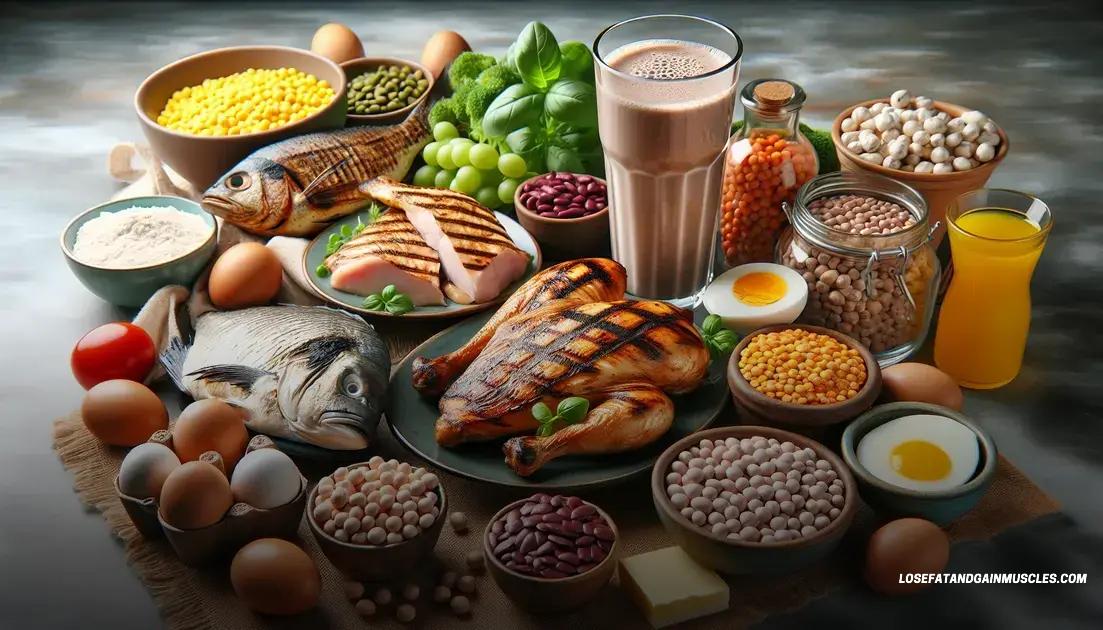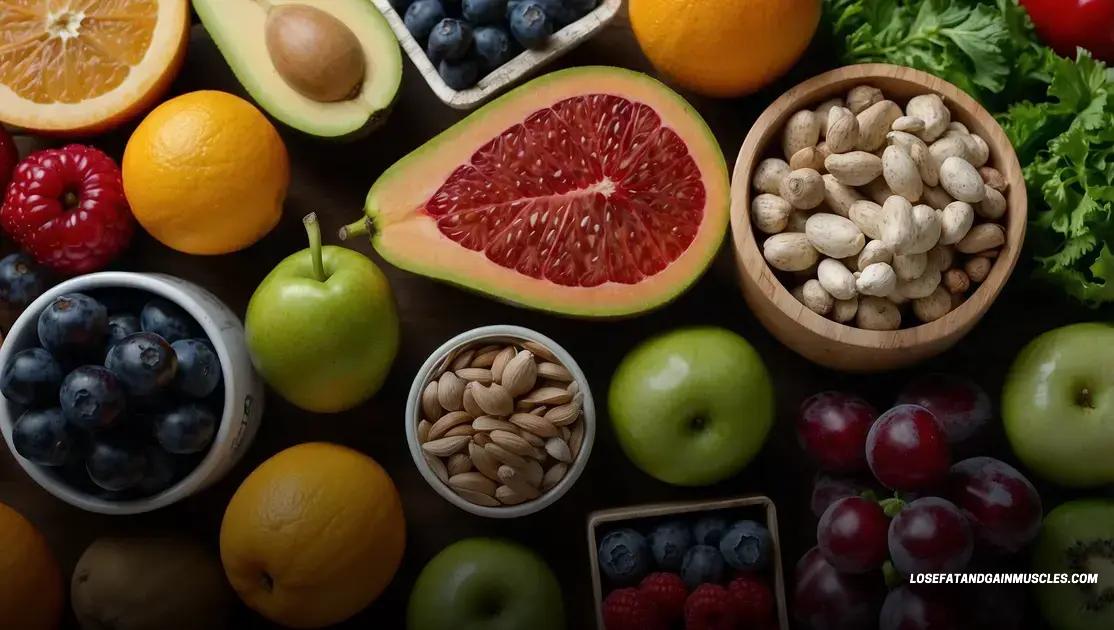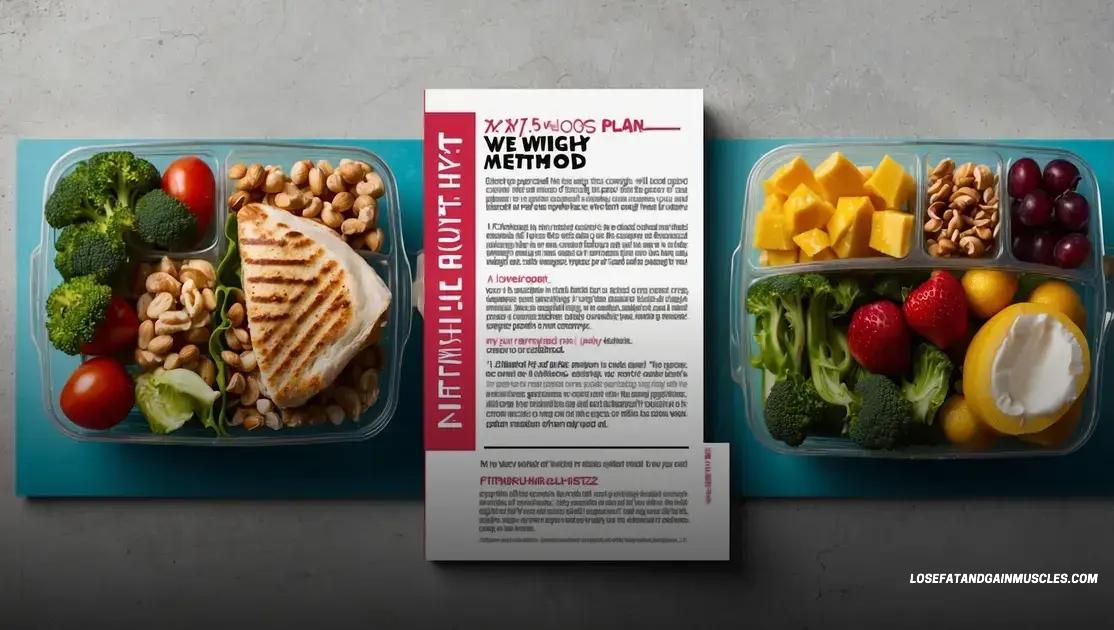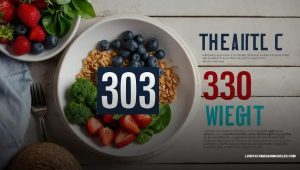Is 2500 Calories Enough to Build Muscle? Uncover the Truth Behind Muscle Growth
A caloric intake of 2500 calories can be sufficient for muscle building when combined with a proper balance of protein, carbohydrates, and healthy fats. A moderate caloric surplus is often necessary to support muscle growth effectively while minimizing fat gain.
Wondering if 2500 calories is enough to build muscle? Many fitness enthusiasts debate this topic, trying to find the perfect caloric intake for muscle growth. In this article, we will delve into how consuming 2500 calories impacts your muscle-building journey, explore necessary dietary adjustments, and highlight the importance of protein and caloric surplus. Understanding your body’s unique needs for muscle development is crucial to achieving your fitness goals.
Understanding Caloric Needs for Muscle Growth
To understand caloric needs for muscle growth, it is essential to grasp how your body requires energy. Muscle building is a physiological process that often demands extra calories, especially if you aim for a significant increase in muscle mass. Total Daily Energy Expenditure (TDEE) is the number of calories your body uses in a day, which includes your Basal Metabolic Rate (BMR) plus additional physical activity.
Calculating Your TDEE
To determine your TDEE, first assess your BMR. Your BMR varies based on age, sex, weight, and height. Once you calculate your BMR, multiply it by an activity factor that corresponds to your daily activity level—sedentary, lightly active, moderately active, very active, or extra active. This gives you a clearer idea of the calories needed to maintain your current weight.
Surplus vs. Deficit
If your goal is to gain muscle, you will need to consume more calories than your TDEE—this is known as a caloric surplus. A common recommendation for muscle gain is to add around 250 to 500 extra calories daily. On the other hand, a caloric deficit is used for weight loss where you consume fewer calories than your TDEE.
Macronutrient Ratios
In addition to considering total calorie intake, the composition of those calories plays a crucial role. Focus on macronutrient ratios: approximately 40% carbohydrates, 30% protein, and 30% fats are effective for muscle growth. This ensures your body gets the necessary nutrients to build muscle efficiently.
Monitoring Progress
Track your daily caloric intake and muscle gains to see if your current plan is effective. If you’re not seeing results over several weeks, reassess your caloric intake and adjust accordingly. Remember that gaining muscle is a gradual process.
Listen to Your Body
Finally, individual needs can vary widely. Listen to your body’s signals and be open to changing your diet and exercise routine based on how you feel and progress. Consulting with a nutritionist or fitness expert can also provide personalized guidance tailored to your goals.
How 2500 Calories Affects Muscle Development

When you consume 2500 calories a day, the impact on muscle development can vary based on many factors, including your current body weight, activity level, and fitness goals. The right caloric intake is crucial for fueling your workouts and recovering afterward.
Energy Levels
First, taking in 2500 calories provides energy for intense workouts. If you’re strength training or engaging in high-intensity activities, this energy is essential. Fueling your workouts helps improve performance and boosts muscle growth.
Muscle Repair and Growth
After exercising, your muscles need time and nutrients to recover. Consuming 2500 calories enables your body to repair muscle tissues that break down during exercise. Nutrient-dense foods provide the necessary vitamins and minerals for optimal recovery, helping muscles to grow stronger.
Individual Variability
It’s also important to recognize that individuals react differently to caloric intake. For some, 2500 calories might be enough to see muscle gains, while for others with higher activity levels or different metabolic rates, it may not suffice. Adjustments may be needed based on personal progress.
Balancing Macronutrients
To maximize the benefits of 2500 calories, focus on the macronutrient composition. Consuming adequate protein, carbohydrates, and healthy fats within those calories can significantly affect muscle gains. Aim to include all three in balanced proportions for optimal muscle development.
Long-Term Consistency
Muscle development takes time, and consistently consuming around 2500 calories can lead to gradual improvements. Monitoring your progress and making necessary adjustments is key. Patience and dedication yield the best results in your muscle-building journey.
Dietary Sources to Optimize Muscle Gains
To optimize muscle gains, it is important to focus on the right dietary sources. Consuming a variety of nutrient-rich foods ensures your body gets the vitamins and minerals it needs to grow muscle effectively. Here are some key dietary sources to consider:
Lean Proteins
Incorporate lean proteins such as chicken, turkey, fish, tofu, and legumes into your meals. Protein provides the building blocks for muscle repair and growth. Aim for at least one good source of protein in every meal to meet your daily requirements.
Complex Carbohydrates
Complex carbs like brown rice, quinoa, oats, and sweet potatoes are vital for energy. They provide a steady release of glucose, which fuels workouts and recovery. Include these foods to support your energy needs while building muscle.
Healthy Fats
Do not overlook healthy fats found in avocados, nuts, seeds, and olive oil. These fats help with hormone production, including testosterone, which plays a role in muscle growth. Balance your diet by including these sources of healthy fats.
Dairy and Alternatives
Dairy products like Greek yogurt, cottage cheese, and milk are great sources of both protein and calcium. If you prefer non-dairy options, look for fortified alternatives that provide similar nutrients. These foods can support muscle repair and overall health.
Fruits and Vegetables
Fruits and veggies are packed with antioxidants, vitamins, and minerals. They aid in muscle recovery, reduce inflammation, and keep your body functioning optimally. Include a colorful variety of produce in your meals to maximize benefits.
The Role of Protein in a 2500 Calorie Diet

Protein is a vital component of any diet, especially in a 2500 calorie diet aimed at muscle growth. It plays a crucial role in building and repairing muscle tissues after workouts. Here’s a closer look at the functions and benefits of protein in your diet.
Muscle Repair and Growth
When you exercise, especially during strength training, your muscles suffer tiny tears. Protein is essential for repairing these tears, allowing muscles to recover and grow stronger. Enjoying enough protein daily helps to foster an environment conducive to muscle growth.
Daily Protein Requirements
For those focused on muscle development, aiming for about 1.6 to 2.2 grams of protein per kilogram of body weight is essential. This translates to about 20-30% of total caloric intake from protein, ensuring you meet your body’s needs for muscle recovery and growth.
Quality Sources of Protein
In a 2500 calorie diet, aim to include high-quality protein sources. This includes lean meats, fish, dairy, eggs, and plant-based proteins like legumes and nuts. Mixing different sources of protein can help you obtain a variety of amino acids, which are vital for optimal muscle function.
Protein Timing
Consider spreading protein intake throughout the day. Aim to consume protein with each meal and snack. Consuming protein soon after workouts can enhance muscle recovery and promote growth. This approach maximizes muscle protein synthesis.
Protein Supplements
If it’s challenging to meet your protein needs through food alone, protein supplements like whey or plant-based protein powders can help. These supplements are convenient and can quickly elevate your protein intake when needed.
Caloric Surplus: Is It Necessary for Muscle Building?
A caloric surplus occurs when you consume more calories than your body burns in a day. For individuals aiming to build muscle, a caloric surplus is often recommended. Here’s why it can be necessary for effective muscle building.
Supporting Muscle Growth
When trying to increase muscle mass, your body requires extra nutrients to support the growth process. A caloric surplus provides your body with the additional energy needed to fuel workouts and support recovery. It creates an optimal environment for muscle repair and growth following training sessions.
The Ideal Surplus Amount
A moderate caloric surplus is generally recommended, typically around 250 to 500 extra calories per day. This amount is sufficient to promote muscle growth without excessive fat gain. Adjusting the surplus based on individual progress and goals is essential for best results.
Balancing Nutrient Intake
It’s vital to balance your caloric surplus with the right mix of macronutrients, especially protein. Ensuring adequate protein intake while in a surplus helps maximize muscle synthesis. The composition of your surplus can significantly influence how effectively your body builds muscle.
Fat Gain Considerations
While a caloric surplus can aid muscle building, too much can lead to unwanted fat gain. Monitoring your body’s response to the surplus is key. If you notice too much fat gain, consider slightly reducing your caloric intake or adjusting your activity levels.
Individual Factors
Keep in mind that individual factors such as metabolism, activity level, and body composition can influence how effective a caloric surplus is for each person. Tailoring your approach based on personal progress and goals is essential for success in muscle building.
In Summary: Building Muscle with 2500 Calories
Understanding how to optimize a 2500 calorie diet for muscle building is essential for achieving your fitness goals. By focusing on caloric needs, protein intake, and the right dietary sources, you can create a solid foundation for muscle growth.
Creating a moderate caloric surplus allows your body to rebuild and grow stronger after workouts. Remember to balance your nutrient intake and adjust based on your body’s responses as you progress.
With the right approach, you can effectively use a 2500 calorie diet to support your journey towards greater strength and muscle development.
FAQ – Frequently Asked Questions about Muscle Building and a 2500 Calorie Diet
Is 2500 calories enough for muscle building?
For many individuals, 2500 calories can be sufficient if properly balanced with macronutrients and tailored to personal activity levels and goals.
How much protein should I consume on a 2500 calorie diet?
Aim for about 20-30% of your calories from protein, or roughly 1.6 to 2.2 grams of protein per kilogram of body weight.
What is a caloric surplus, and why is it important?
A caloric surplus occurs when you consume more calories than you burn, and it is important for providing the energy needed to promote muscle growth.
What are the best dietary sources for gaining muscle?
Ideal sources include lean meats, fish, legumes, dairy, whole grains, and a variety of fruits and vegetables to ensure a balanced nutrient intake.
How does exercise affect my caloric needs?
Exercise increases your caloric needs based on your activity level, which is important to factor in when planning a diet for muscle growth.
Can I gain muscle without a caloric surplus?
While it’s possible to gain muscle in a maintenance phase, a caloric surplus often enhances muscle gain, especially for those with higher training volumes.













